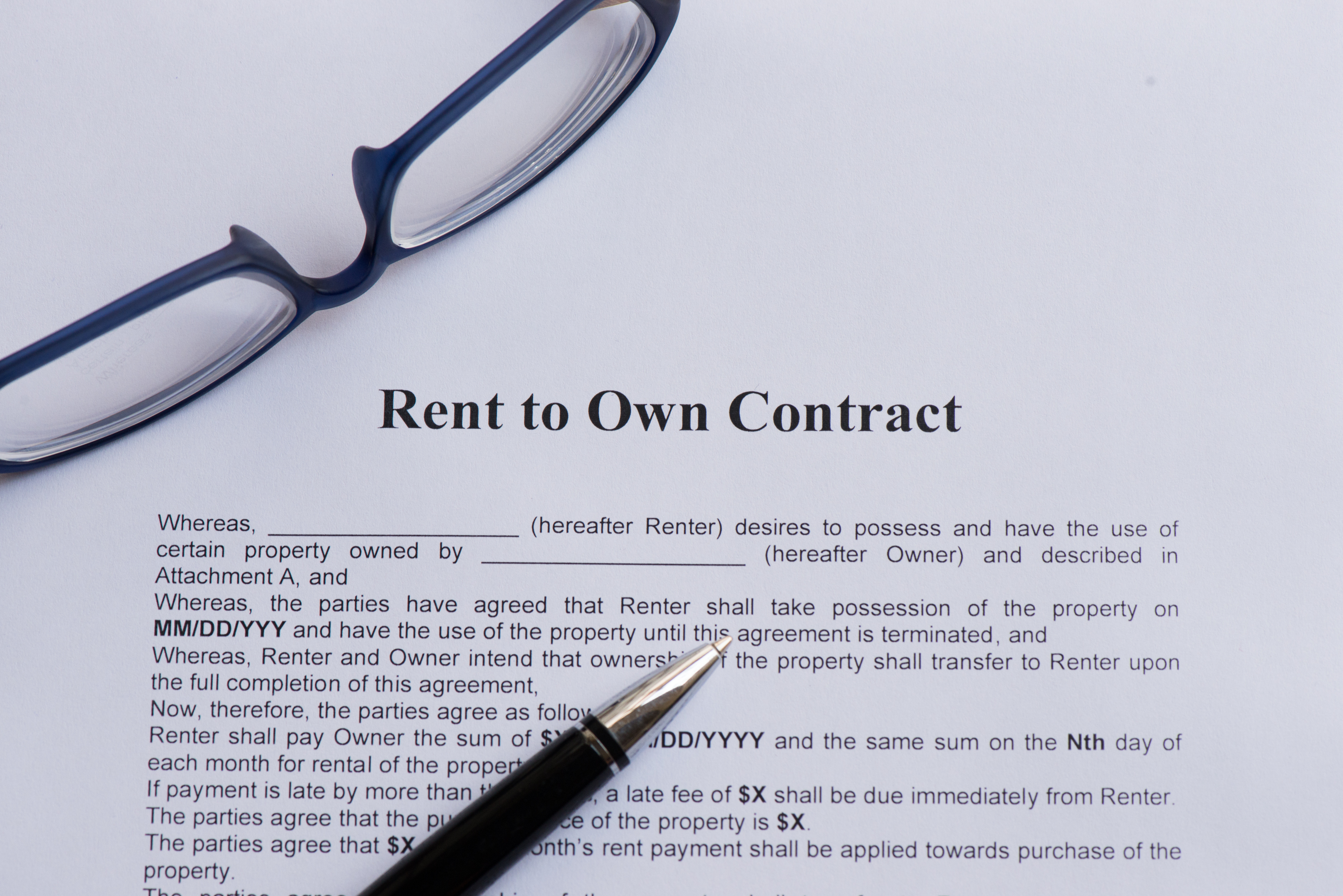A rent-to-own agreement is a contract that establishes a landlord-tenant relationship with a catch – the tenant may purchase the property after a certain time has elapsed in which monthly dues were paid to the landlord. These monthly dues will partially go towards the purchase price at closing. The other amount not contributing to the purchase price at closing is being enjoyed by your landlord.
North Carolina General Statutes 47G-1 through 47G-7 govern the rent-to-own, or “option contract” law. There are minimum contract requirements that must be present before the rent-to-own lease agreement is considered valid. The first thing to look for in an option contract is that it must be stated in a signed and notarized contract and the contract itself must include all the terms of the agreement, as well as some disclosures that the tenant should be aware of.
The terms must include, among other things, (1) the full names and addresses of all the parties to the contract; (2) the date the contract is signed by each party; (3) the legal description of the property to be conveyed subject to an option to purchase; (4) the sales price of the property to be conveyed subject to an option to purchase; (5) the option fee and any other fees or payments to be paid by each party to the contract; (6) all of the obligations that if breached by the purchaser will result in forfeiture of the option; (7) the time period during which the purchaser must exercise the option; (8) a statement of the rights of the purchaser to cure a default, including that the purchaser has the right to cure a default once in any 12-month period during the period of the covered lease agreement; (9) a conspicuous statement, in not less than 14-point boldface type, immediately above the purchaser’s signature, that the purchaser has the right to cancel the contract at any time until midnight of the third business day following execution of the option contract or delivery of the contract, whichever occurs last.
Once the option contract has been signed by all the parties involved, the landlord/seller is responsible for recording a copy of the agreement or a memorandum of the agreement with the office of the register of deeds in the county where the property is located within five (5) days of agreeing.
If the tenant/buyer defaults on an obligation that was included in the option contract, the law requires the landlord/seller first to notify the tenant/buyer of their intention to forfeit the option contract. Once the tenant/buyer has been notified, the tenant/buyer must be given the chance to cure the default within, at least, 30 days.
If the tenant/buyer cannot cure the default, the buyer’s equitable right of redemption shall be extinguished by, (1) a mutual termination executed by the parties and recorded in the register of deeds of the county in which the property is located, or (2) a final judgment or court order entered by a court that terminates the purchaser’s rights to the property and extinguishes equity of redemption.
It is also important to know that Landlord-Tenant Law, North Carolina General Statutes Chapter 42, is also still applicable to option contract agreements. For more information regarding Landlord-Tenant Law, see our blog post titled “What Rights Do Tenants Have in South Carolina?”
If you have entered into a rent-to-own lease agreement and are seeking help after default, or if you are a landlord and your tenant has defaulted, please contact King Law Offices today at 888-748-KING (5464). Our dedicated team is ready to provide you with reliable legal advice and guidance. Trust King Law Offices to protect your interests and achieve the best possible outcome for your situation.


